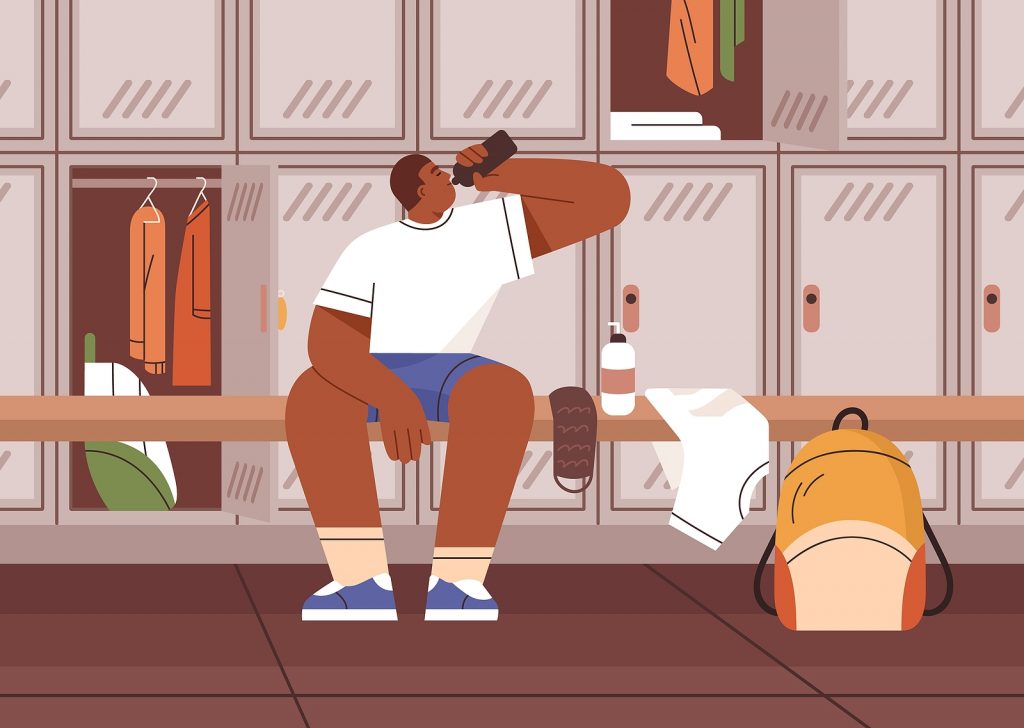Over the years, research has shown just how beneficial and therapeutic exercise can be for mental health. From warding off depression to treating anxiety and other psychological disorders, moving our bodies increases endorphins and enkephalins and can have tremendous effects on the human mind. However, that doesn’t mean that athletes who participate in a wide range of sports are immune to mental health struggles.
This is especially evident within college athletics where students have a plethora of added stressors. Of course, there are many advantages to competing in college sports such as, but not limited to:
- Receiving financial help, scholarships, and academic assistance
- Learning to cope with adversity
- Developing leadership skills and positive personal traits
- Gaining a community of peers
- Keeping an active lifestyle
- Career advancement
While these benefits are often revered, there can be an equal number of drawbacks in the college athletic space, and these can be a burden to already troubled students trying to maintain their grades. Some of these stressors are:
- Pressures to perform well from coaches, peers, and parents who have high expectations
- Strict schedules with rigorous physical training
- Unbalanced nutrition can contribute to the progression of an eating disorder
- Sleep deprivation, bodily injuries, and rehabilitation
- Loss of the “normal” student life experience
With these burdens in mind, it is not surprising to learn that 30% of women and 25% of men who are student-athletes report having symptoms of depression, anxiety, or other psychological conditions. What is shocking though, is that among that group, only 10% of those student-athletes seek help.
In a 2013 survey conducted by the NCAA, 30% of participating student-athletes reported feeling seriously overwhelmed during the past month. A third struggled to find energy for other tasks because of the physical and psychological demands of their sport. Nearly 25% felt mentally exhausted. Less than half of those who sought help for mental health issues reported satisfactory care from their team or university.
The low number of student-athletes seeking mental health care could be due to several different reasons. One notable explanation revolves around the stigma that surrounds mental health issues in our society.
Discussions around athlete mental health were televised on a global scale at the 2020 Olympics in Tokyo, Japan when Simone Biles withdrew from five of her six finals to focus on her mental health. After winning the United States Open in 2018, the highest-paid female athlete in the world, Naomi Osaka, revealed her struggles with depression when she withdrew from the French Open in 2021. Both women were praised (albeit, also criticized by some) for taking care of their emotional and mental well-being. The roster of athletes being vulnerable and candid with their discussions about mental health continues to expand with NFL’s Dak Prescott, NBA phenom Giannis Antetokounmpo, and women’s soccer standout Christen Press being added to the list. Their openness has “reverberated throughout the sports world, helping to reduce the stigma around mental health, and has generated an increased focus on the mental health of athletes at all levels”.
It’s important to recognize that struggling with mental health is not a weakness. If student-athletes could see and hear these elite, professional sports players come forward in efforts to de-stigmatize mental health issues, maybe they too could find the courage to speak up and seek help for their struggles.
According to the NCAA, most psychiatric disorders in student-athletes improve and resolve with proper treatment, but early recognition is important to shorten the time between illness onset and treatment.
If you or someone you know is experiencing symptoms of a mental health issue, here are just a few tips that could help ease your burdens:
- Talk to family, teammates, and/or coaches
- Make an appointment with a therapist, sports psychiatrist, or other trusted medical professional
- Practice self-care and set aside time for yourself each day to do something you enjoy
- Practice yoga or meditate
- Listen to music or take a short walk
